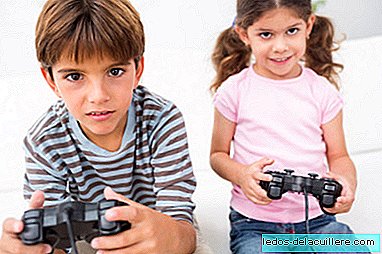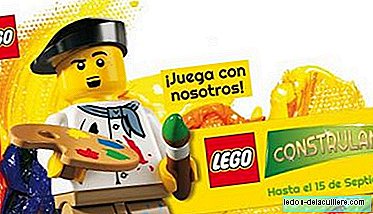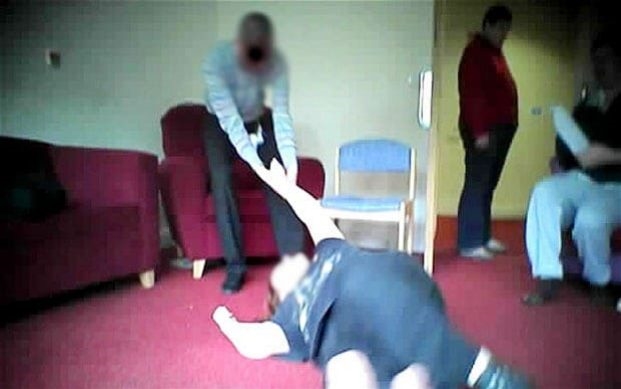
It is an undeniable reality: children like video games and it is an arduous task to get them to play in moderation. Because the key, according to experts, seems to be there, in moderation.
Many schools already integrate new technologies in their educational methodology, as a way to motivate a generation that was born in the era of apps For everything and video games. But the Canarian government has taken a step further: In the next 2018-2019 academic year, 20 schools in the Canary Islands will participate in a pilot educational project on the proper use of video games.
What is the Canarian initiative?
The project, taught during a quarter, will last 10 weeks and will be developed as extracurricular activity twice a week. In addition, it will include a school league of three 'e-sports', chosen for their great presence among young people: FIFA, League of Legends and Clash Royale.
The main idea of this combination of training workshops on the good use of technologies with a physical activity session and a videogames training session, is that students associate all these activities and knowledge and get used to include them all in their lives. This is explained by those responsible for the project. Evaluating children's attitudes to the game, it will be known in what aspects it will be necessary to work in the training sessions.
These training days are aimed at children, but also teachers and parents. At the end of the quarter in which this project will be developed, an exhaustive evaluation will be carried out so that students make responsible use of the technologies.
Moreover, Teresa Acosta, director of the Canary University Agency for Educational Quality and Evaluation, ensures that:
"The project is designed to reduce the digital divide between students, their families and teachers, so they learn to speak the same language as their sons and daughters, know what interests them and have many more facilities to help them if any problem and to participate in your digital education. "
According to figures from the Ministry, in the Canary Islands 76% of children between 6 and 10 years old play video games, and up to 78% between 11 and 14 years.
And what do parents think about this? It is clear that the debate about whether or not to use video games in schools is served. It can be a new way of teaching, perhaps more motivating than the traditional, but like everything else: as long as it is used sparingly and without reducing the time spent on sports. Let's look at the arguments for and against.

The pediatricians, against
Before the announcement of the league of e-sports in schools, the Association of Primary Care Pediatricians of this Canary Islands (APap) warn about the sedentary lifestyle and risk of addiction involved in video games. Y ask for the withdrawal of the project that the next course will be developed in its Autonomous Community.
These professionals do not consider competitive video games as a sport. They ensure that the promotion of sedentary leisure activities "goes against" the official recommendations for the prevention of overweight and obesity carried out by the World Health Organization (WHO), the Ministry of Health, Social Services and Equality of the Government of Spain and the Department of Health of the Government of the Canary Islands.
In addition, they point out that these dangers are more evident in the Canary Islands, with alarming figures of overweight and obesity in children and adolescents, among the highest in Spain. In your opinion,
"Children and adolescents are already quite exposed to sedentary leisure in their free time with the consumption of television, video games and use of mobile phones and tablets in the domestic environment."
What's more, remember that "video game addiction has recently been considered a mental illness by WHO, being included as such in the CIE (International Classification of Diseases), for neurological and psychiatric disorders that have been associated with its excessive use.
The National Strategy on Addictions 2017-2024 of the Ministry of Health, Social Services and Equality, stated in its report that 18% of the population of adolescents and young people aged 14 to 18 years use information and communication technologies in an abusive manner .
Arguments in favor
Already in Babies and More We have echoed on different occasions the most current studies on the benefits of video games in schools. We speak, for example, of those based on gamification as a learning technique, such as strategy games or individual and collective challenges.
Or the benefits that can be in the father-son relationship to share his love of video games. But we want to "go out" and feel what the expert voices say.
The spokesmen of the Spanish Association of Video Games (AEVI) argue that their use in schools improves the abilities and skills of children and even are useful to regenerate educational methods: “It has been shown that the brain is predisposed for faster learning with games than with books" But there is more.
The videogames improve memory and the cognitive abilities of minors: they develop their inventiveness, creativity and intellectual and analytical capacity.
They are motivated to overcome challenges, which increase your motivation and commitment.
They enrich the logic ability, deduction and reasoning and increases its spatial orientation. Better results are observed in mathematics of adolescents who use them.
You can take advantage of its educational part and its playful part to stimulate children, so they are optimal tools for their immersion in any type of activity.
They are useful in order to accelerate and improve the content acquisition process.
Enhance mental agility, decision making and the ability to resolve conflicts. In addition, they allow comparing different strategies and consequences of the decisions made.
Help to increase reflexes, coordination and trust.
What do you think of the use of video games in the classroom?












